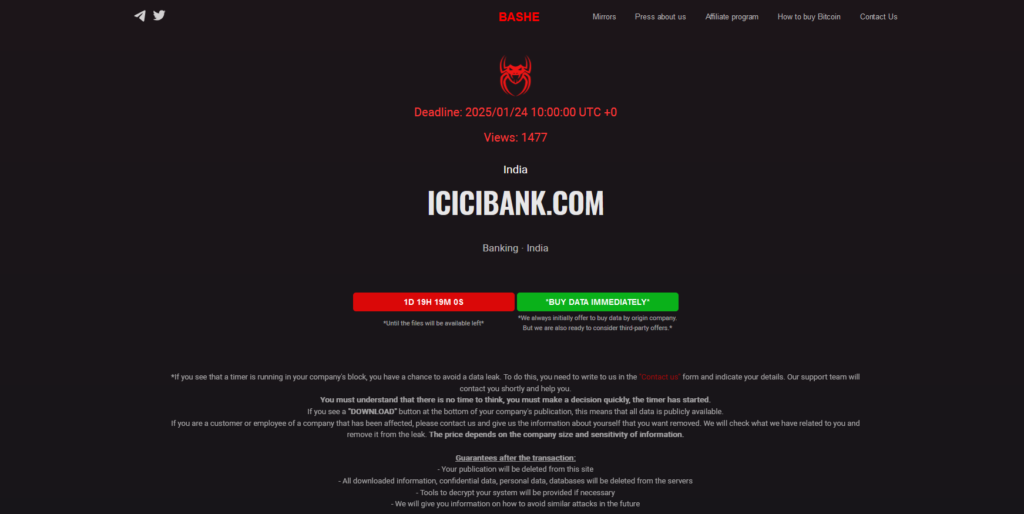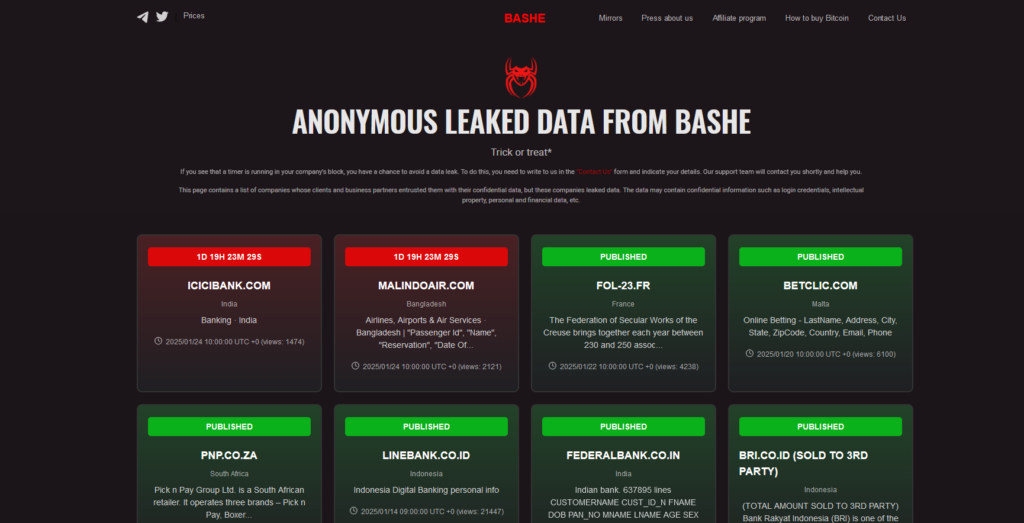Introduction
The cybersecurity world was recently shaken by alarming news: ICICI Bank, one of India’s largest private sector banks, reportedly suffered a massive data breach by a ransomware group. This incident has raised serious concerns about data security and privacy, affecting millions of customers and emphasizing the urgent need for robust cybersecurity measures.
In this blog, we’ll explore the details of the ICICI Bank data breach, the potential impact on users, and the lessons businesses can learn to safeguard sensitive information.
The ICICI Bank Data Leak: What Happened?
According to reports, a notorious ransomware group claimed responsibility for infiltrating ICICI Bank’s systems and leaking sensitive customer information. While the specifics of the breach are still under investigation, the exposed data allegedly includes:
- Personal Identifiable Information (PII) such as names, addresses, and phone numbers.
- Financial details, including account numbers and transaction records.
- Corporate and institutional data managed by the bank.
The ransomware group is suspected of leveraging advanced tactics such as phishing attacks, system vulnerabilities, or insider threats to gain unauthorized access to the bank’s databases.


Impact of the Data Breach
The implications of such a data leak are far-reaching, including:
- Customer Identity Theft: Exposed personal and financial information could lead to identity theft and fraudulent transactions.
- Reputational Damage: The breach undermines customer trust, tarnishing ICICI Bank’s reputation as a secure financial institution.
- Regulatory Consequences: Under India’s Digital Personal Data Protection Act 2023, data fiduciaries are required to report breaches promptly. Non-compliance could result in hefty fines.
- Economic Loss: Ransomware attacks often demand financial settlements, and data recovery processes incur additional costs.

Lessons Learned for Businesses
This incident serves as a critical reminder for organizations, particularly those handling sensitive customer data, to strengthen their cybersecurity posture. Here are key takeaways:
- Implement Advanced Threat Detection: Use AI-driven tools to detect and mitigate cyber threats in real-time.
- Regular Security Audits: Conduct periodic vulnerability assessments and penetration testing to identify weak points in your system.
- Data Encryption: Encrypt sensitive data both at rest and in transit to minimize the risk of exposure during breaches.
- Employee Awareness: Educate employees on cybersecurity best practices to prevent phishing and insider threats.
- Incident Response Plan: Develop a comprehensive plan to respond quickly and efficiently to data breaches.
How Techgen Cyber Solution Can Help
At Techgen Cyber Solution, we specialize in building robust cybersecurity frameworks to protect businesses against data breaches and ransomware attacks. Our services include:
- Data protection audits.
- Incident response and disaster recovery planning.
- Implementation of encryption and multi-factor authentication systems.
- Employee training on cybersecurity best practices.
Don’t wait until it’s too late. Take proactive steps to safeguard your data and customer trust.
Conclusion
The ICICI Bank data leak highlights the growing sophistication of cyber threats and the critical need for businesses to prioritize cybersecurity. As technology evolves, so do the tactics of cybercriminals, making it imperative for organizations to stay vigilant and proactive.
If you’re concerned about your company’s cybersecurity measures or need expert guidance, contact us today. Let’s build a secure digital future together.


